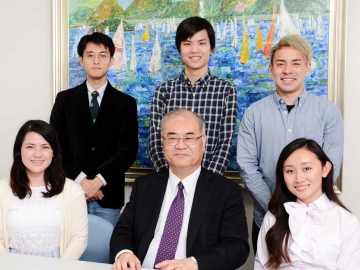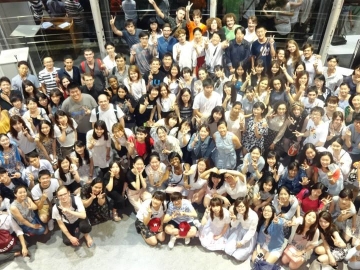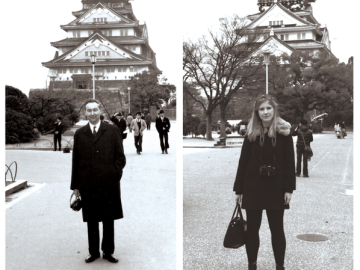On September 25, members of Japan’s National Diet and European Parliament participated in a symposium at the Delegation of the European Union to Japan’s Europa House titled “Japan and the EU: common challenges and the potential of cooperation.” The EU Institute in Japan Waseda (EUIJ) organized the event in partnership with the Japan-EU Parliamentary League of Friendship, the European Parliament delegation for relations with Japan, and the Delegation of the European Union to Japan. Six members of Japan’s National Diet and four members of the European Parliament attended the event.
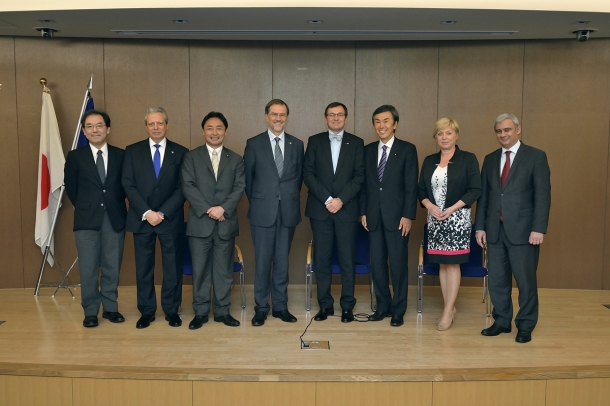
Ambassador of the European Union to Japan, Viorel Isticioaia-Budura, opened the event, commenting that although the Japan-EU relationship has mainly revolved around international trade and investment thus far, he hopes the discussions at the symposium will lead to new perspectives on the common challenges both sides face and how they can work together to overcome them. Before starting the first session, Waseda University Professor and Deputy Director of EUIJ Waseda, Hidetoshi Nakamura, expressed thanks to Chairman of the Japan-EU Parliamentary League of Friendship, Kenji Kosaka, for helping make the symposium possible.
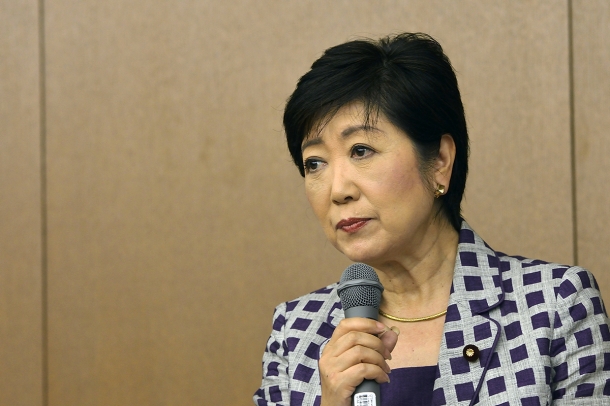
Yuriko Koike shared some of her experiences being the first woman to become Minister of Defense
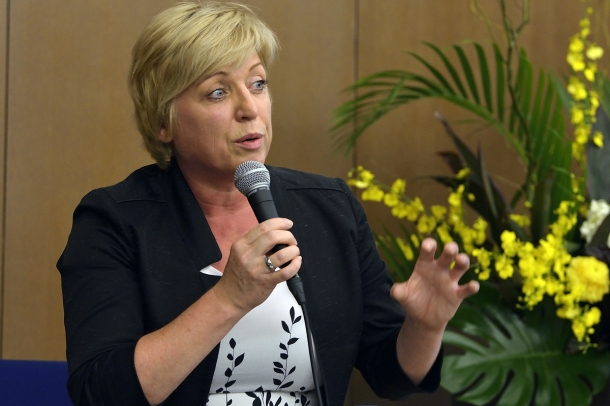
Romana Tomc addressed the need to reassess pension schemes across the EU
In the first session, panelists discussed common demographic challenges concerning ageing populations, declining birth rates, women’s empowerment, and immigration. Yuriko Koike discussed how these issues relate to Japan and shared her own experiences as Japan’s first woman Minister of Defense. In regards to immigration, Koike commented that although Japan is not yet prepared or open to the idea of accepting large waves of immigrants, she asserted Japan’s ability to cooperate in international education, citing her involvement in an initiative to build an elementary school for Syrian refugees in Turkey. Chair of the Delegation of the European Union to Japan, Petr Jezek, discussed the effects of a shrinking and ageing population in Europe and the Czech Republic. In regards to the refugee crisis and immigration, he commented that only one out of ten Syrian refugees would be able to join the labor force and therefore the only viable solution for an ageing population is policy that can raise the birth rate. European Parliament member, Romana Tomc, pointed out that all European countries facing population crises have different pension schemes and addressed the need for a universal European system. She emphasized however that it is necessary to expand the workforce in order to maintain an economy that can support an aging population and an increasing number of pension beneficiaries. Regarding women’s empowerment, Tomc commented that there are only nineteen women in positions of power within the Slovenian government. Tomc said that although she is opposed to “quota systems” in regards to women’s empowerment, it might be a necessary first step. Japan Diet member Masaharu Nakagawa commented that he himself has promoted a quota system as the Chair of a bipartisan parliamentary group. He stated that for Japan, which is ranked 104 in the world for gender equality, it is necessary to implement a quota system to promote women’s empowerment. Nakagawa stated that the government needs to present clear plans on how to address the population crisis in order to attract investment amidst the waning economic environment. Nakagawa commented that Japan has not yet discussed immigration as a nation and that the country needs to reach a consensus before it can implement reformed immigration policy.

Petr Jezek explained the need for policies that will raise the birth rate
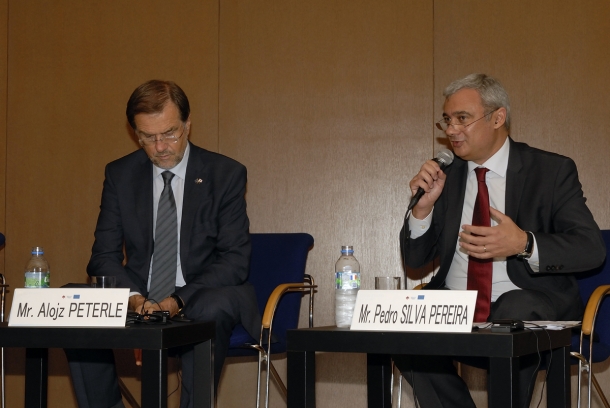
Alojz Peterle and Pedro Silva Pereira discussed the importance of new trade agreements between EU and Japan
The second session of the symposium centered on the theme of cooperation between Japan and the EU and focused on economic partnership and strategy in the form of the Japan-EU FTA/SPA trade agreements. Nakagawa expressed the need for policies that regulate where international companies pay taxes. European Parliament member, Alojz Peterle, discussed the importance of the SPA trade agreement that is currently under negotiation and how it can help promote international cooperation in the field of medicine and health amidst the ageing population crisis. European Parliament member, Silva Pereira, stated that although the trade agreements come with their fair share of challenges, research shows their implementation would raise the GDP of Japan and European nations by a considerable 0.7-0.8%. In regards to the refugee crisis, Japan Diet member, Nobuteru Ishihara, expressed his admiration for how the EU is handling immigration and minimizing backlash within their own countries. He also commented that while removing barriers is essential to economic prosperity for all partner nations, it is essential to protect fields of interest. Ishihara expressed his hopes for opportunities to cooperate in new fields such as medicine and culture. Professor and Deputy Director of EUIJ Waseda, Hidetoshi Nakamura, closed the second session by looking back on the over 40-year history of the Japan-EU Parliamentary League of Friendship and expressed his hopes for celebration after the trade agreements complete their negotiations.
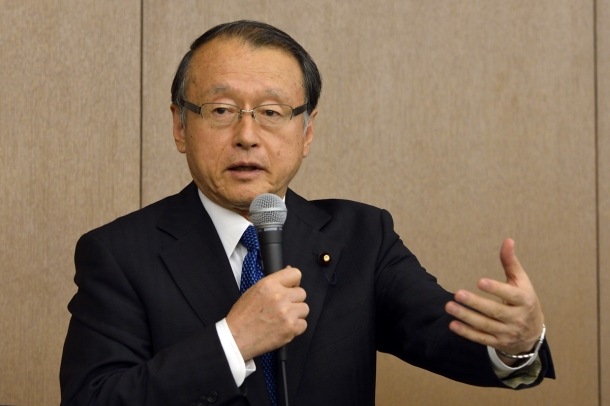
Masaharu Nakagawa suggested Japan should come together as a nation and discuss immigration

Nobuteru Ishihara expressed his admiration towards the EU and their handling of immigration
Chief-Secretary of the Japan-EU Parliamentary League of Friendship, Masazumi Gotoda, closed out the symposium by expressing the need for economic partnership between Japan and the EU, and thanking the European Parliament members who traveled all the way from Europe.

